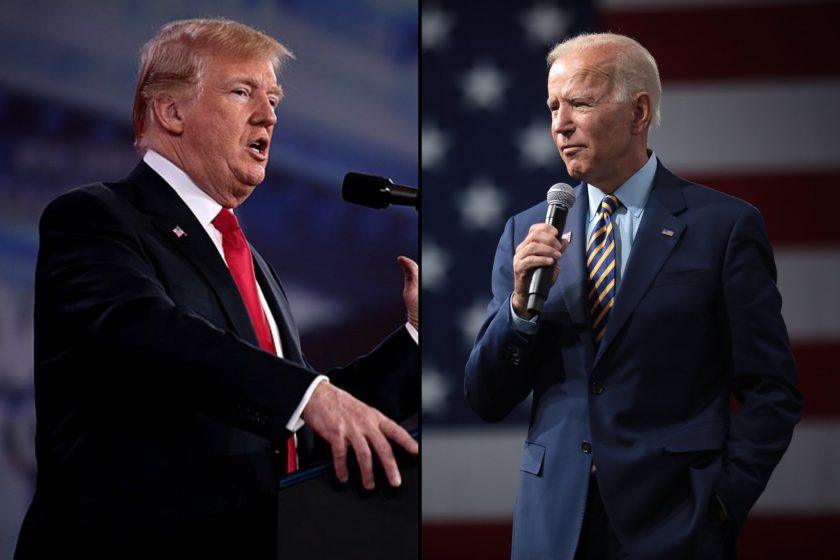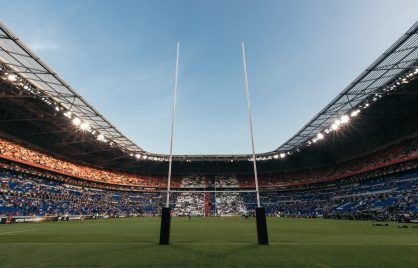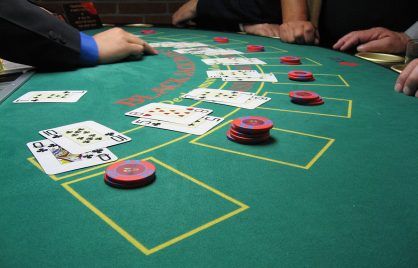2024 Election Betting Odds: Who’s The Next President?

Based on the latest election betting odds, the recommended bet is to back Joe Biden at 3.0 (BetMGM).
1. Donald Trump 2.1 (Bet365, BetMGM)
Despite having being written off so many times before, during and after his term as President, Donald Trump stands clear at the head of the betting for November. One year ago, expert opinion held that Ron DeSantis would usurp him as the GOP nominee. Now, DeSantis is a busted flush and Trump appears to be just a few days away from securing that nomination and expected to win every primary.
That record stands as a stark reminder to underestimate the Trump phenomenon at your peril, but there is a strong counter-argument when it comes to the general election. Besides that initial, extremely narrow victory over Hillary Clinton, (despite losing the popular vote by nearly 3M votes), Trump lost every nationwide election, whether that be to Joe Biden in 2020 or Republicans in the 2018 and 2020 House of Representatives elections. In 2022, Trump-endorsed candidates made in his image flopped badly, amid favorable conditions.
There is also the considerable problem of 91 pending criminal indictments. An entrance poll at the Iowa Caucus – consisting of active ultra-Conservatives in a very favorable state – showed that one third said conviction would disqualify him. He cannot win if those numbers stand up. Likewise, this week’s Reuters/Ipsos poll shows just 20% willingness to vote for Trump if convicted, compared to 58% against.
Nevertheless, polls against Biden generally favour him, given the Republican’s advantage in the electoral college. This is a vastly better position than at this stage in the last two elections and he is entitled to favorite status.
2. Joe Biden (3.0 BetMGM)
Roughly a year ago, my recommended bet was Biden at 4.0. He’s now 3.0 so we’ve beaten the odds and the Democrat nomination looks very likely, but it’s hard to feel confident. Around 60% don’t want him to run, including 40% of those who voted for him in 2020. His approvals are absolutely dire, stuck below 40%.
Winning in 2020 required an extraordinary coalition of 81M voters, whose principle motive was beating Trump. Repeating that, with the burden of incumbency and at 81 years of age, seems a very tall order. Polls show him shedding voters among key groups – young and minority voters. On the other hand, he’s doing very well with seniors, and those other groups are not generally well disposed to Trump.
In his favor is his record on legislation and jobs, but those approvals don’t indicate recognition. Foreign affairs is looking ever more disastrous for him, with aid to Ukraine stalled and the Israel/Hamas war splitting his coalition. Fairly or not, Republicans are sure to portray him as a weak, senile old man, incapable of leading in a time of crisis. Biden is extremely vulnerable to meme warfare.
Finally, the current strong showing of third party candidates is a massive worry. They were absent in 2020 but undermined Hillary Clinton in 2016. There are strong parallels with that year, when Democrats ignored the signals that their candidate was unpopular.
3. Michelle Obama (13.0 Bet365, BetMGM)
With Trump and Biden likely to be the candidates, most others in betting contention are Democrats thought to have a chance if Biden withdraws later for any reason. New Hampshire will tell us a lot. Biden isn’t on that unsanctioned ballot, but his supporters are urging a write-up campaign. If getting less than 50% or even just above, speculation would mount.
That speculation has recently centered on the former First Lady. Don’t buy it. Obama has consistently said she has no interest in running and there is no reason to disbelieve her. Many of the rumors were spread by Republicans such as Vivek Ramaswamy, in order to undermine Biden. Plus, to get the nomination, she would have to usurp better-qualified Kamala Harris. Such a move might go down very badly with the Democrat base. Terrible value at these odds.
4. Nikki Haley (15.0 BetMGM)
We will know within days whether Haley is a serious candidate or whether her campaign will fold. She absolutely must beat Trump in the New Hampshire Primary. The former South Carolina Governor has emerged as the non-Trump choice, but all the signals are that position is ruinous among a majority of GOP voters. New Hampshire is not representative of the states to come, including her own on February 13th.
The case for backing her is twofold, but weak. Haley is vastly more electable than Trump and would likely beat Biden by a big margin. If she stays in the race and accumulates delegates, she could end up well positioned if the courts ruin Trump. Even then, though, I’m inclined to think the Republicans would look elsewhere, for somebody more in line with Trump’s thinking. Particularly on foreign policy, such as Ukraine.
5. Gavin Newsom (21.0 BetMGM)
Prior to Obama, bettors latched onto Newsom as the default alternative to Biden. A few weeks ago, he was trading at single-figure election betting odds on Betfair. This despite him fully endorsing Biden.
No doubt, the California Governor has a big future at national level. He’s proven to be a strong TV performer when going into the lion’s den for Democrats – Fox News. Last year he sparred with Sean Hannity and debated Ron DeSantis, to positive reviews among liberal audiences.
Consequently, he is very well placed for 2028 and could make a good surrogate for Biden in November. If Biden were to shock everyone by withdrawing, fall ill or suffer an unforeseen disaster, Newsom would very much enter the conversation. He is an old ally of Harris in California so, theoretically, some kind of deal might be possible.
6. Robert F Kennedy Jr. (29.0 BetMGM)
Son of Bobby Kennedy, RFK first entered the Democrat primary, but after gaining no traction, opted to run as an Independent. He’s polling respectably for a third party but I strongly suspect that is down to the surname and hostility to the two main candidates. His profile rose dramatically as an anti-vaxxer during the Covid pandemic. Not only is that position a loser nationwide, but he’ll lack any sort of party machine and is highly unlikely to win a single state. If staying in though and winning a few percent, he could seriously damage one of Trump or Biden. Probably the latter.
7. Dean Phillips (34.0 Bet365, BetMGM)
This little-known Minnesota Congressman has entered the Democrat primary to try and force Biden out. He is swamping the New Hampshire airwaves and his bid revolves around that performance next week. Current election betting odds represent terrible value. Phillips isn’t a serious candidate, and even if he were to hurt or finish Biden, others would step in and usurp him. Democrats are highly suspicious of his motives and ties to Republican donors.
8. Kamala Harris (41.0 Bet365, BetMGM)
When 2024 betting opened, Harris was favorite, based on the theory that Biden would retire. She hasn’t cut through as VP though and doesn’t poll well.
Nevertheless, if you think Biden will ultimately be removed from the ballot for whatever reason, her current odds represent an obvious bet. As VP, she would be in pole position to inherit the nomination and always leads hypothetical Democrat polls without Biden.
Plus, assuming the obvious nomination ticket is confirmed in August, her name will be on the ballot. Were Biden to fall ill, or merely a conspiracy theory about his health gains traction, her odds would crash. Veterans of US presidential election betting will confirm such conspiracy theories are a staple. See Clinton’s collapse in the Manhattan heat in 2016 as the prime example, or Trump getting Covid during the 2020 campaign.
9. Ron DeSantis (51.0 BetMGM)
From red-hot favourite, trading below 2/1 after the 2022 mid-terms, DeSantis is proving a spectacular flop. He campaigned in all 99 Iowa counties, earned the endorsement of the state Governor and evangelical leaders, yet came in almost 30% behind Trump.
The problem? Well, many point to personal weaknesses and awkwardness, but the main issue was DeSantis pursuing the exact same segment of GOP voters that is emotionally committed to Trump. He hasn’t a prayer of winning either New Hampshire or South Carolina, leaving a difficult decision to make in the following weeks. Either get out, or endorse Trump and try again later.
DeSantis is certainly young enough to come again. Or stay in, pick up some delegates here and there and hope Trump is convicted and somehow disqualified later. Polls consistently show he would pick up many more Trump voters than Haley in that scenario. My money, however, is on the Florida Governor cutting his losses.
10. Elizabeth Warren (151.0 BetMGM)
In the event of a Biden withdrawal, Warren is entitled to enter the conversation. At one stage of the 2020 race, she was odds-on favorite to win the Democrat nomination. Her problem then was Bernie Sanders dominating her natural base on the progressive wing of the party. That wouldn’t be the case this time and she remains one of the party’s biggest hitters in the Senate. Nobody would be better positioned to unite progressives and moderates, and Warren would be sure to run a passionate, competent campaign.
Recommended Bet: Back Joe Biden at 3.0 (BetMGM)
Check out our article on political betting in 2024 for more election betting odds and guidance.
Lead image: Emma Kaden/Flickr, CC BY-SA 2.0


